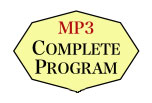 |
Tony Horwitz
... reporter and author. A Voyage Long and Strange: Rediscovering the New World and other best sellers including Confederates in the Attic, Baghdad Without a Map, and Blue Latitudes are among his contributions to understanding ourselves. Mr. Horwitz started as a reporter in Indiana, then worked for a decade in Australia, Europe, Africa and the Middle East. As a foreign correspondent for The Wall Street Journal, he reported on wars and conflicts as a foreign correspondent before returning to the U.S. where he won the Pulitzer Prize for national reporting and worked as a staff reporter for The New Yorker. Now a full-time author, he, his wife Geraldine Brooks, winner of the Pulitzer Prize for Fiction, and their son live on Martha’s Vineyard. |
The United States is not now and never has been Anglo. Reality is infinitely richer, the truth much more interesting than the fiction, says Pulitzer Prize winning journalist Tony Horwitz. He now applies his laudable skills to writing books.
“The real story is more varied, more colorful and yes, messier than the version we learned in school about ‘brave Columbus’ and solemn Pilgrims in funny hats. That wasn't really a very exciting version and it was a lot more complicated. I think it’s important to recognize where there are a lot of roots feeding what became our history.
“This was a largely Hispanic continent before the first Anglos ever got here. African slavery begins very early in Hispaniola -- in the early 1500s with Columbus -- and then it begins in Jamestown in 1619. So even before Plymouth is founded, you've got the roots of a lot of the American story.
“Coronado leads an enormous Spanish expedition up from Mexico in the 1540’s. At roughly the same time, De Soto is coming across from Florida with his own army. These two armies never intersect. As far as I can tell they didn't really even know the other was there. Coronado's men capture a tattooed Indian woman in Texas and then she escapes. She's running across Texas to escape to her homeland and she runs into De Soto's men, who have come the other way across the continent. She is captured by them. She was the only connecting link between the two greatest expeditions of this era.”
In addition to the English being late-comers, Mr. Horwitz surfaces other facts.
“The first Englishman known to have led an expedition into what is now New England is Bartholomew Gosnold. They arrived first off the coast of Maine. They were looking for sassafras, which was believed to be a cure for syphilis, not for religious freedom.
“The first people they see are these curious characters in what looks like a European boat, wearing European clothes. They turn out to be Indians who have had contact for decades with Basque fishermen. They speak a few words of different languages and one of the Englishman writes, ‘They seem to know much more about us than we knew about them.’ They were thinking ‘We're arriving at this unknown shore.’ Well, it wasn't unknown to many other European peoples and there had been quite a bit of interaction already.
“One of the reasons the Pilgrims have been enshrined as our founders is that in the early Nineteenth Century -- the early years of a new “science of history” -- mostly Protestant New Englanders were writing America's history. Perhaps not surprisingly, they elevated their own forbearers who had landed at Plymouth, and diminished the role of the non-English, of Catholics, of Spanish, French, and even of Southerners. Hence Jamestown, even though it precedes Plymouth, to this day still plays second fiddle.
“However you feel about the immigration debate, this was a largely Hispanic continent long before the first Anglos ever got here. That doesn't give any one group the ultimate right to it, but to cast this as an Anglo nation? It isn't now, but it wasn't at the start of our European history either. I think we have to kind of tear down the old myths before we can get started building a new one.
“The real wild card in the equation is the changing demographics of this country. If you imagine current trends 50 years down the road, will the English story and Plymouth have the same hold on people in 2050 when a much higher percentage are of non-English extraction."
[This Program was recorded May, 14, 2008, in Atlanta, Georgia, U.S.]
audio content:
Conversation 1 |
Conversation 2 |
Conversation 3 |
Conversation 4 |
Conversation 5 |
Conversation 6 |
5:43 |
12:01 |
9:23 |
12:53 |
4:49 |
|
 |
 |
 |
 |
 |


